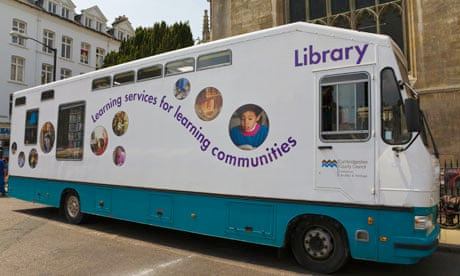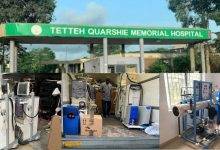The commissioning of a new children and mobile library concept in Ghana… Thanks to SSNIT, Ghana has a brand new library with a different concept. But how did this come about?

On 16th February 2023, the Daily Graphic published that the Vice President of Ghana commissioned the SSNIT Children and Mobile Library in Accra on 15 February 2023. Ghana Library Authority provided the land but SSNIT fully paid for the project in dollars. The magnificent modern library, fully computerized, is part of the Public Library system of Ghana (PLSG).
Unfortunately many people do not know the genesis of the library. It is, therefore, appropriate and necessary to, as a follow up to Graphic’s publication, reveal the origin of the Library here.
INSPIRATION FROM BIRMINGHAM AND SINGAPORE
When I visited the new Birmingham (Britain) Public Library and I was inspired by its Children Library Section. It was extremely modern and technologically sound. But the Singapore Children library blew my mind. The blend of technology, digitization, culture and traditional librarianship was outstanding and remarkable. No one could fail to be inspired by the children library of Singapore. I said to myself that this was the type of library we needed in Ghana to “liberate” the public library system. Both the Birmingham and Singaporean children libraries were part of the traditional public library system. I kept thinking about them and I thought what about if these two library concepts were developed into a standalone children library concept and a mobile library added to it? What about establishing a National Children Library Network somehow separate from the public library concept? My reasoning was that such a new library concept would serve the reading needs of the children better. The need for a separate library concept could easily be defended and justified.
In the first place, the adults in Ghana have, more or less, lost the desire and the will to read. Because of this the public libraries are more and more neglected by government, poorly funded and staffed. This was bound to affect reading opportunities and habits of children. There is need to catch our children young; train them to read early in life; mold and position them to appreciate learning when still young and cultivate in them the love and spirit of lifelong reading. If the adult have given up on reading, the children must not be abandoned. I became convinced that there was a need for a separate children library system with a mobile library, not entirely separate from the public library but independent enough to initiate and activate or execute its own programmes. I envisaged that the National Focal Point (NFP) would be located in Accra to which other branches or nodal points in Ghana could be linked in a networking arrangement.
PROBLEM OF ACCEPTANCE AND FUNDING
But there was a snag. There was a big problem of convincing government to buy into the idea. Remember, Governments of Ghana, since the overthrow of President Nkrumah in 1966, have lost interest in establishing and funding public libraries and they would at all cost find reasons to dismiss the new children library concept just as they regrettably rejected the National Library Concept. Nevertheless, I put pen and paper together and formulated a new children and mobile library concept “for sale.” I first discussed it with the Ghana Library Authority Board. But I was met with anticipated cynicism and doubt. Their reason was that government has reneged on its responsibilities to public libraries so they could not see how they would accept the new children library concept. This reaction did not demotivate me. I flew the kite into the Ministry of Education but predictably the idea was met with outright dismissal. The popular question from officials was “Why establish a separate children library system? How could it be funded when there was no money to properly fund the public library?” The plan seemed to be doomed at birth so far as government was concerned.
PARASTATALS AND PRIVATE CORPORATE ORGANISATIONS
I went back to the Board and suggested to them that if government had no money or the will, the Board could try parastatals and private corporate organizations. The Board supported me but said “If only you can get help from them” My trust in the parastatals and private organizations was based on the fact that the Board had successfully negotiated with Byes and Ways Ltd., a private organization, to build a branch library for the Library Authority at Frafraha, on the Accra-Dodowa road. I thought we could explore, in fact, capitalize on this corporate goodwill. The Board gave me the go ahead and I accepted the challenge. By the way, the Byes and Ways Library was completed and open to the public in June 2022, after a long delay by the new Library Board.
Then SSNIT came in. SSNIT has been a longtime friend of the Ghana Library Authority. It had been donating computers, library materials and books to the public library. So I tested the waters. I contacted one of their senior staff, Mrs Nti, and briefed her on our intentions. She promised to discuss the issue with the Corporate Affairs Manager, Mrs Eva Amegashie. Few weeks later Mrs Nti called to tell me that SSNIT was about to celebrate its 50th anniversary. As part of its corporate responsibility some projects would be undertaken to commemorate the anniversary. She and Mrs Eva Amegashie advised me to submit a written proposal on the children and mobile library to SSNIT Management for consideration. I reported this good news to the Library Board who asked me to draft a proposal for their consideration, which I did. The Board discussed and accepted the proposal. The next thing was to submit the proposal to the Director-General (DG) of SSNIT, Mr Ernest Thompson.
Three members of the Library Board, including myself, booked an appointment with the DG of SSNIT and submitted the proposal. Mr. Thompson spoke highly of the importance of public libraries to the growth and development of the child.
He fondly remembered how he himself benefited greatly from public libraries when he was a child. He promised to submit the proposals to the Anniversary Planning Committee (APC) and asked us to wait for their response. Days passed into weeks and weeks passed into months and months looked like eternity. I kept visiting the Corporate Affairs Manager and her assistance, Victoria, to enquire about the application and to urge them to lobby for us. In 2015 the Corporate Affairs Manager called to tell me that our application was accepted and that $3.995 million was allocated to the project. Note, it was not 3.995million cedis but 3.995 million dollars! A letter to confirm the offer followed but I was asked to meet the Director-General of SSNIT on a certain date and at a certain time. In my excitement I was there 30 minutes earlier on the appointed date. Eventually I met the DG and to my utmost delight and joy, he also confirmed the SSNIT offer.
COMMISSIONING OF THE LIBRARY PROJECT
The SSNIT Board, under Prof Joshua Alarbi, quickly formed the Trust Lib Board Ltd, with Mr. Kwabla King as its Chair, to execute the project and I was made a member of the Board. The project started after the Minister for Education, Prof. Jane Nanaa Opoku Agyeman, cut the sod for the project on 15 July 2016. Initially, we had some land problems but H.E. President Mahama and his Chief of Staff intervened and solved them. Happily, the library building was completed in December, 2016, but was not furnished. There
was regime change in 2017 and it took almost six years to furnish the library despite the fact that the SSNIT fund was there to be used. One interesting reason the new government gave for delaying the furnishing was that they had to audit the project. No matter how long it took, the library was finally commissioned on 15th February 2023, and as the saying goes, the rest is history. But I wished very much that Mr. Ernest Thompson, Prof Alarbi and the Ghana Library Authority Board that started the project were invited to witness the commissioning!
[The writer is a former Chairman of the Ghana Library Authority Board]
BY KOSI KEDEM


